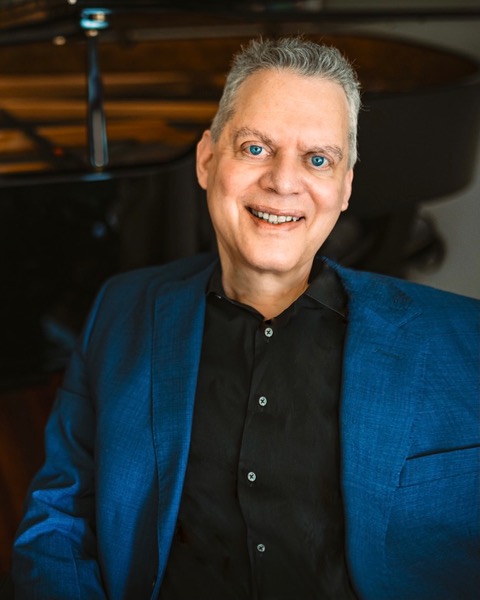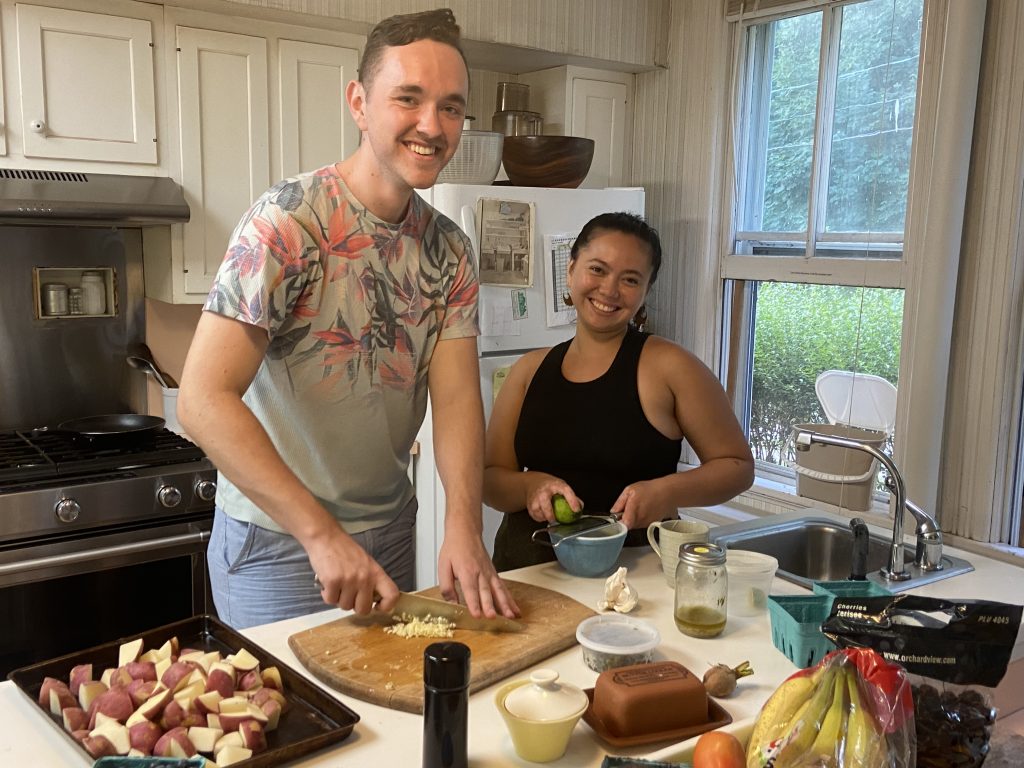It is a pleasure to work with artists as sophisticated as Nicoletta Berry and Sam Kidd. Each of them has a precociously strong understanding of their voice, a technical toolbox allowing them a wide range of colors and dynamics. With a flick of a larynx they have the capacity to sound seductive, ironic, naive, plaintive, angry, profound, or silly. And, need I add, beautiful.
Paradoxically this makes them a bit challenging to coach. It’s a sweet dilemma: even their first readings sound so imposing that it feels ungenerous to criticize. But I have come to learn that the glossy surface may hide a lack of specificity—or, to put it plainly, they sound great even before they have connected to every single word, every single phrase in the song.
I reflected on the way Bénédicte Jourdois worked with the cast when we did this program at Caramoor in March. She attacked everything through the text, working through the lyrics with meticulous care. Her work went far beyond the scope of a garden-variety diction coaching. The language work led into the poem, the poem led into the music, the music led into the emotion and color.
I bit the bullet today and decided to do some text work on a couple of songs that needed a jump-start. It shouldn’t have surprised me that focusing on the lyrics kicked everything into a higher gear. I am more likely to plunge in by talking about character, subtext, intention, phrasing, and color right off the bat. I feared I would be condescending to Sam and Nicoletta, two well-educated people, when I went through the poems in such a basic, painstaking way.
“J’en ai marre,” says Sam, as he works on a cabaret song by Serge Gainsbourg about a bored, disgruntled ticket-puncher in a train station (“Le poinçonneur des Lilas”).
“J’en ai MMMMMaRRRRe,” I bark back. “It means I’ve had e-NOUGH!”
“J’en ai MMMMaRRRe,” he sings, and continues, “j’en ai ma claque…”
“J’en ai ma KKKKKlaque,” I spit. “I’m fed up!”
“J’en ai ma KKKKKlaque,” he fires back at me.
I have a tiny suspicion that Sam sounds so convincing because he is actually getting fed up—with me. But whatever the cause, the ticket puncher is coming to life in all his desperation, bit by bit, phoneme by phoneme.
I had wanted to do this song in the March show, but Sam asked me not to put it on the program at that time. “I’m not good at that kind of speaky stuff,” he explained. That may have been true before, but he’s sure getting the knack of it now. The “Poinçonneur” never sounded so good.
And then sometimes you have to go in the opposite direction. Nicoletta had been applying herself industriously to Poulenc’s mournful song “C,” and while she sang it with a lovely, silvery sweetness I felt the essence of the piece was eluding her. Rather than looking for the solution in text, I asked her to sing it as a vocalise—no lyrics at all, just the melody on a sustained “ah.” And suddenly it was all there. The haunted grief, the dignity, the pathos emerged in her voice, which took on the color of an Amati viola. When we reinstated Louis Aragon’s poem, the effect was staggering.
After rehearsal we’ve made some dinners at our place. The two of them are great in the kitchen. No one can zest a lime like Nicoletta, and Sam has impressive knife skills. If the singing stuff doesn’t work out for them, they’ve got something to fall back on.



0 Comments